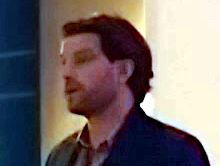A Quote by Seth Shostak
The fact that we can't easily foresee clues that would betray an intelligence a million millennia farther down the road suggests that we're like ants trying to discover humans. Ask yourself: Would ants ever recognize houses, cars, or fire hydrants as the work of advanced biology?
Related Quotes
I think the 'Terminator' idea is a reasonable one - that is that one day the Internet becomes self-aware and simply says that humans are in the way. After all, if you meet an ant hill and you're making a 10-lane super highway, you just pave over the ants. It's not that you don't like the ants, it's not that you hate ants; they are just in the way.
While ants exist in just the right numbers for the rest of the living world, humans have become too numerous. If we were to vanish today, the land environment would return to the fertile balance that existed before the human population explosion. Only a dozen or so species, among which are the crab louse and a mite that lives in the oil glands of our foreheads, depend on us entirely. But if ants were to disappear, tens of thousands of other plants and animal species would perish also, simplifying and weakening land ecosystems almost everywhere.
One of my pet peeves is that when people are in their automobiles, I think they're exceptionally rude on the road. I would love to have the superpower to make their cars break down after they do something rude on the road so the freeways would be littered with these jackasses who have broken-down cars.
If army ants are wandering around and they get lost, they start to follow a simple rule:Just do what the ant in front of you does. The ants eventually end up in a circle. There's this famous example of one that was 1,200 feet long and lasted for two days; the ants just kept marching around and around in a circle until they died.
Consider this: all the ants on the planet, taken together, have a biomass greater than that of humans. Ants have been incredibly industrious for millions of years. Yet their productiveness nourishes plants, animals, and soil. Human industry has been in full swing for little over a century, yet it has brought about a decline in almost every ecosystem on the planet. Nature doesn't have a design problem. People do.
In this single galaxy of ours there are eighty-seven thousand million suns. [...] In challenging it, you would be like ants attempting to label and classify all the grains of sand in all the deserts of the world. [...] It is a bitter thought, but you must face it. The planets you may one day possess. But the stars are not for man.


































